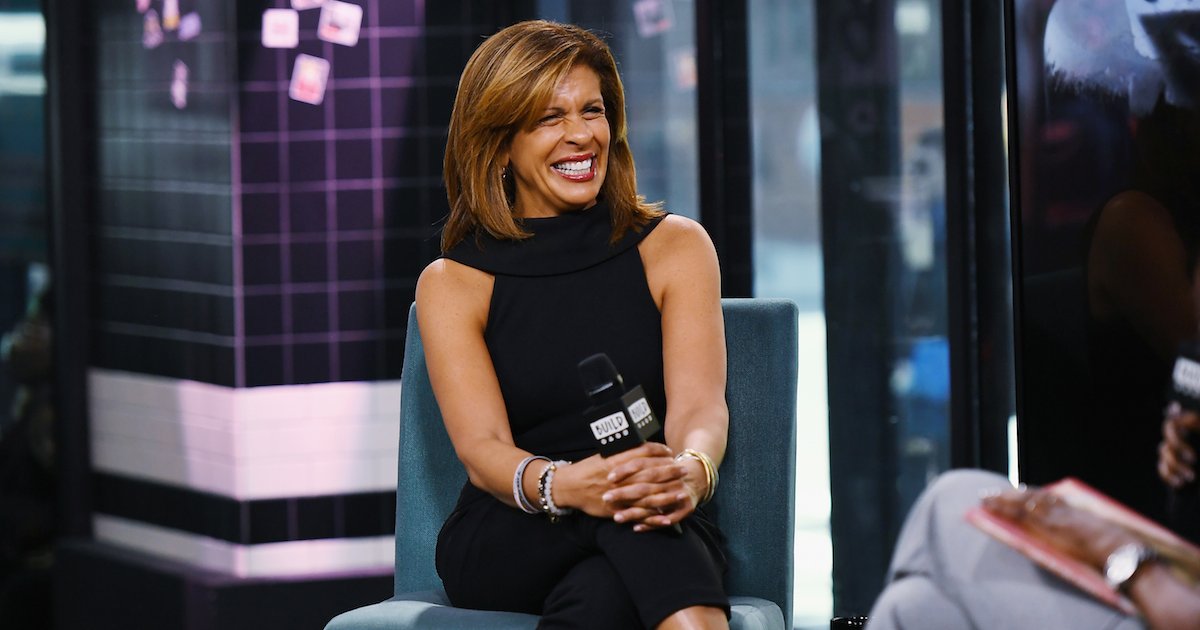A Touching Moment
- A young woman shares a touching story of how Hoda Kotb, a breast cancer survivor, comforted her after losing one of her best friends to the disease.
- Kotb’s breast cancer was discoverd when she was 43-years-old at a routine doctor exam in in February 2017. She’d never had a mammogram to that point.
- Mammograms are the most valuable tool in detecting breast cancer, and it’s recommended women generally start scheduling them when they’re 45-years-old.
“Hoda is just the most amazing, inspirational woman,” Anne Gillberg, the “stranger” touched by Kotb, tells SurvivorNet. “I can’t even tell you how much what she did meant to all my friends who were grieving.”
Read MoreAfter the sweet embrace with Kotb, Gillberg went to pay for her manicure. Turns out, there was no need. While leaving, Kotb sneakily footed the bill.
The Instagram post caught the attention of the Today Show family and Kotb’s co-host, Jenna Bush-Hager, brought the story up during their show Today with Hoda & Jenna. Kotb recalled how emotional she felt after hearing Gillberg’s friend had passed away.
"I remember not knowing her friend had passed, I knew her friend had cancer at the time, and when I asked how she was doing, I remember she told me she had passed away. And it was so jarring." Kotb said. "When someone's in pain, you wanna do something … she was so sweet, such a sweet person."
Navigating Breast Cancer
Kotb was diagnosed with breast cancer in February 2007 when she was 43-years-old after doctors discovered lumps in her breast during a routine exam. Throughout her lifetime, she had never had a mammogram before, which caused her to become an advocate for breast cancer prevention and awareness. After receiving her diagnosis, Kotb consulted six separate doctors to decide which treatment plan was the best fit for her. In the end, she had a mastectomy and was declared in remission.
Kotb has clearly learned how valuable mammograms for the men and women who are eventually diagnosed with breast cancer. They’re the most valuable tools in catching the disease early, which means you will have more treatment options and increase the likelihood of successful outcomes. However, Kotb’s diagnosis occurred at an age younger than the guidelines recommend women start scheduling annual mammograms.
Related: When You're Getting a Mammogram, Ask About Dense Breasts
Currently, guidelines suggest annual mammograms begin at the age of 45 and continue until 54. After the age of 55, women can choose to continue annual screening or opt for having them once every to years. However, there’s been debate among oncologists as to whether women should start screening at the age of 40. For those who are considered “high-risk” of breast cancer, screening should start as young 30-years-old. Women who are considered “high-risk” refer to those who have had a first-degree relative who’s had breast cancer; hold the the BRCA1 or BRCA2 gene mutation; or had radiation on their chest area when they were young.
Dr. Connie Lehman explains when women should start scheduling mammograms
Support Can Go a Long Way
Support can come in many forms, and really mean so much. Just take the long hug Kotb gave Gillberg as an example. Even though it may be considered a small gesture to some, sometimes a little can really go a long way. Whether you’re currently battling cancer, are a cancer survivor, or lost a loved one to the disease it’s important to find ways to cope.
Ovarian cancer survivor Anna DeMers credits her support system and community in Portland, Oregon for helping her push through treatment. By contacting support groups and local resource, she was able to connect with fellow women who have faced this disease, and created friendships that will last a lifetime.
“I feel very, very lucky that my cancer was diagnosed here in Portland,” DeMers tell SurvivorNet. “We have some amazing support systems and support groups with the Ovarian Cancer Alliance of Oregon and Southwest Washington. There are some great support groups at Good Sam Hospital. There’s a lot of ways for women diagnosed with ovarian cancer to get support and get some great medical care.”
Ovarian cancer survivor Anna DeMers says support means so much during treatment
Learn more about SurvivorNet's rigorous medical review process.


